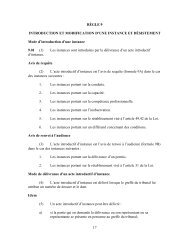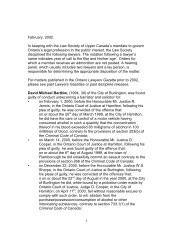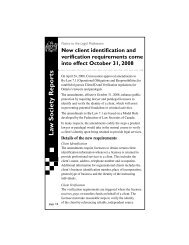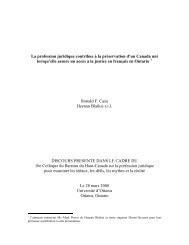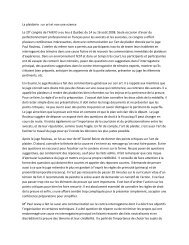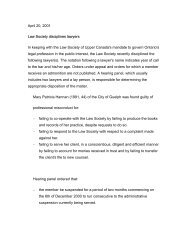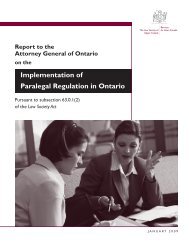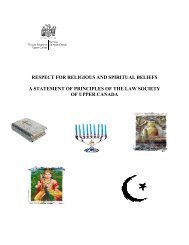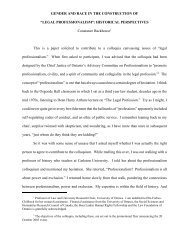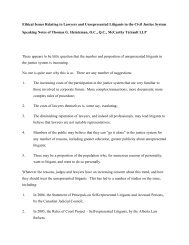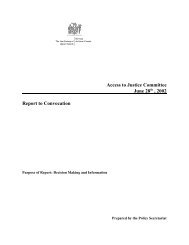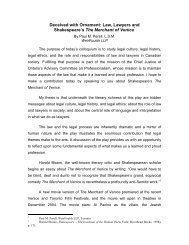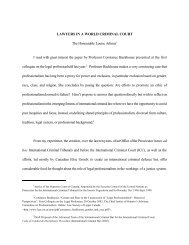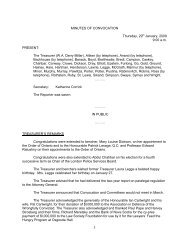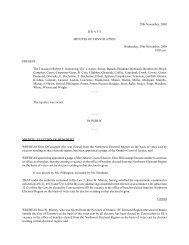of self regulation? - The Law Society of Upper Canada
of self regulation? - The Law Society of Upper Canada
of self regulation? - The Law Society of Upper Canada
Create successful ePaper yourself
Turn your PDF publications into a flip-book with our unique Google optimized e-Paper software.
Moreover, critics also argue that when discipline proceedings are instituted the<br />
penalties are too lenient because lawyers are too sensitive to their colleague’s<br />
situation…there but for the grace <strong>of</strong> god go I… 149 <strong>The</strong> previous discussion <strong>of</strong> Mr. Hunter<br />
is but one example <strong>of</strong> this. Another concern is that few lawyers are ever disciplined for<br />
excessive billing, a common practice that is the most significant complaint from<br />
clients. 150<br />
Still others argue that the complaints processes run by law societies are not<br />
especially consumer friendly. 151 Furthermore, even if people do pursue their concerns, the<br />
disciplinary system occupies the field, crowding out other remedial avenues (civil or<br />
criminal). <strong>The</strong> consequence is that discipline is a sop, it funnels complaints away and<br />
<strong>of</strong>ten miscreant lawyer get <strong>of</strong>f the hook, or receive only minimal discipline. 152<br />
6. Reactive and Inefficient Institutional Culture<br />
Because the <strong>self</strong>-regulatory process is beholden to the lawyers themselves in the<br />
form <strong>of</strong> fees, law societies are significantly underfunded and understaffed. Consequently<br />
they operate reactively, primarily on the basis <strong>of</strong> complaints, rather than actively seeking<br />
out problematic behaviour, before it is too late. While law societies are empowered to<br />
conduct spot audits and can commence an investigation without a complaint, these<br />
actions are the exception rather than the rule.<br />
149 Seneviratne, Legal Pr<strong>of</strong>ession, supra note 2 at 124-125, 131-132, 140. MacKenzie notes that in the Lang<br />
Michener case five partners who were members <strong>of</strong> the executive who failed to make timely disclosure <strong>of</strong><br />
Pilzmaker’s conduct only received a reprimand. Supra note 71 at 27-1. Another variation <strong>of</strong> this concern is<br />
when highly respected lawyers appear on behalf <strong>of</strong> their miscreant colleagues in dis cipline proceedings to<br />
wax eloquent about their good character and how the egregious behaviour is out <strong>of</strong> character. See Downie<br />
and Devlin, Book Review, “<strong>Law</strong>yers Gone Bad” (2008) Canadian Literary Review. (forthcoming).<br />
150 Woolley, supra note 55.<br />
151 Seneviratne, supra note 2 at Ch. 5.<br />
152 See e.g. Brockman & McEwen, supra note 121.<br />
42



